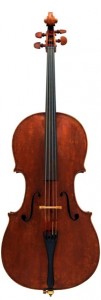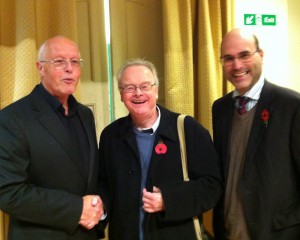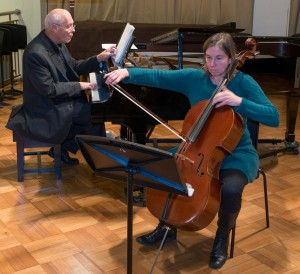Chi Mei Ricercari – If cellos could talk
Tom Irvine (Senior Lecturer in Music) tells us about Michael Finnissy’s new piece, which had a sneak preview performance last week in preparation for the December premiere in Taiwan:
I’ve been travelling to Taiwan for the department and university regularly since 2009. One of the things that has come of my visits is a partnership with the world-famous collection of fine string instruments held in Tainan (a beautiful and laid-back city in the island’s warm and sunny south). The instruments belong to the Chi Mei Cultural Foundation, which was set up by the founder of the Chi Mei Group, a major Taiwanese technology company—chances are, they made some part of the screen you are reading this on. In 2012 we asked our distinguished colleague Michael Finnissy, professor of composition at Southampton, to write a set of seven pieces for the Foundation’s remarkable collection of cellos (including two Stradivari!). The pieces are a bit unusual, because they are meant to played on more than one instrument—the cellist will be asked to switch between a group of three cellos. Our friends at the Chi Mei Foundation have kindly agreed to allow us to choose three instruments to use in the premiere performances in Taiwan this December. The lucky instrumentalist is Nicola Heinrich, of Winchester College, our neighbours a few minutes down the M3.
to write a set of seven pieces for the Foundation’s remarkable collection of cellos (including two Stradivari!). The pieces are a bit unusual, because they are meant to played on more than one instrument—the cellist will be asked to switch between a group of three cellos. Our friends at the Chi Mei Foundation have kindly agreed to allow us to choose three instruments to use in the premiere performances in Taiwan this December. The lucky instrumentalist is Nicola Heinrich, of Winchester College, our neighbours a few minutes down the M3.
We are now hard at work preparing. The University sees the concerts (on 10, 11 and 12 December) as an opportunity to raise our profile in Taiwan, and is sending a delegation led by our Vice Chancellor Don Nutbeam. Southampton is a popular destination for Taiwanese students. We’re conscious that this is an honour, because there is hardly a country in the world with so many good universities! Our tour—which I will blog here—will stop at three of the best ones: National Cheng Kung University in Tainan, National Chiao Tung University in Hsinchu and National Taiwan University in Taipei. We are particularly pleased that the final concert, at National Taiwan University, also coincides with NTU’s 85th birthday. Members of the delegation, including our colleagues from computer and web science Dame Wendy Hall and Sir Nigel Shadbolt, will use our trip from the south to the north of Taiwan to visit old friends and make new ones at these and other universities, in the world-famous Taiwanese electronics industry and at leading research institutions like the Academia Sinica.
![Michael Finnissy and Nicola Heinrich Michael and Nicola 2[1]](http://blog.soton.ac.uk/music/files/2013/11/Michael-and-Nicola-21-205x300.jpg)
The basic premise of the ‘Ricercari’ is that the cellos in the Chi Mei Collection remember all the music that they have ever played, and that they are telling us about their very first experiences. To substantiate this fantasy, I researched (and you could translate ‘ricercar’ as ‘research’) the earliest music written for solo cello – by Domenico Galli and Giovanni Gabrielli, imagining that this might be what the cellos can recall from their early years, along with many other composers. But the piece itself lives in two time-zones: that of the cello’s memory (17th – 18th century) and that of the questioning piano (21st century). These time zones co-exist, or – more literally – they are superimposed as polyphony. There are seven, dream-like, portraits – each lasting about four minutes.

I’ll leave you, dear readers, with pictures of Nicola and Michael rehearsing and of us enjoying the evening’s wonderful atmosphere after the instruments (well, actually just one in this case, Nicola’s early twentieth-century French cello, very much in the old Italian style) had gotten a chance, thanks to Michael, to share some memories with us.


